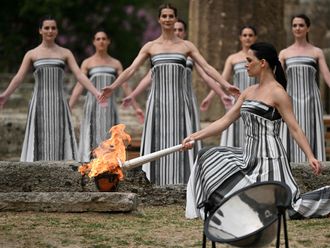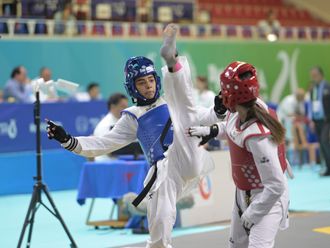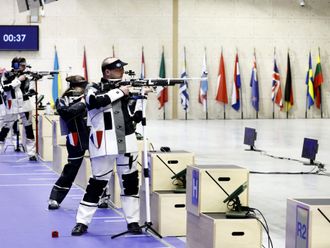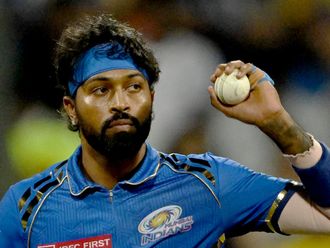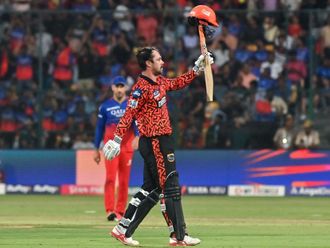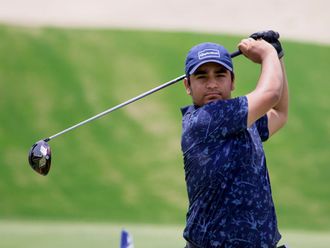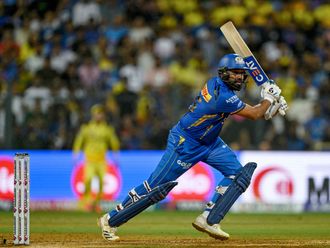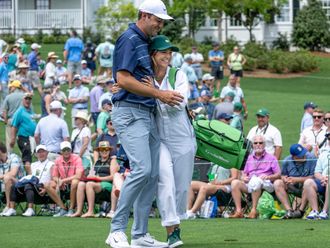Dubai: Feuding former Yugoslav basketball stars Drazen Petrovic and Vlade Divac would be back on talking terms if it wasn’t for Petrovic’s tragic death in 1993, according to their former national teammate Zoran Savic.
Petrovic and Divac’s strained relationship featured in the 2010 ESPN documentary Once Brothers after Divac, a Serb, stopped a fan from running on court with the Croatian flag following Yugoslavia’s Fiba World Championship win in 1990.
The incident was a by-product of tensions preceding the Yugoslav War, which left 140,000 dead and four million displaced from 1991 to 2001, leading to the break-up of Yugoslavia into six separate countries: Croatia, Serbia, Macedonia, Montenegro, Bosnia-Herzegovina and Slovenia.
Petrovic, a Croatian, refused to speak to his old friend Divac after the flag incident and the outbreak of civil war, even though the two players played together in the USA’s National Basketball Association (NBA) — Petrovic with the Portland Trail Blazers and Divac at the Los Angeles Lakers.
Three years later Petrovic died in a car accident in Germany, aged 28, on his way back from a Croatian European Championship qualifier and the pair never got to reconcile their differences.
“Vlade has a lot of regret because he used to speak to Drazen about everything, but now he doesn’t have the chance,” said Savic, who is setting up the BasicBall Academy at American University of Dubai this month.
“Vlade didn’t know it was the Croatian flag because we didn’t look at other flags, we took the flag of Yugoslavia, Croatia wasn’t even a country at the time. It was a stupid incident but nobody thought it would mean something bigger.
“When the war began, everyone started to protect his side — Drazen a Croatian and Vlade a Serb — but this was just a moment and in my opinion everything would be back as it was.
“Toni Kukoc and Dino Radja are both Croatian but they still came to Divac’s last game and it was a time of great jubilation. I believe Petrovic would have been there too and everything would have been like before.”
The 1990 World Championship win represented a last hurrah for the Yugoslavian national team, which had dominated the sport with one Olympic gold medal, three World titles and five European Championship wins. Petrovic’ death soon after marked the end of an era.
“In my opinion, Petrovic was the best player who ever played in Europe,” added Savic, who went on to play for both Real Madrid and Barcelona. “He was one of the main reasons basketball in Yugoslavia was on such a high level, so many kids played because of Drazen Petrovic.”
The six nations to have been born out of Yugoslavia’s break-up have yet to replicate their predecessors’ success. Only Serbia have managed to win two world titles and two European Championships, but they haven’t won a title since 2002, having lost the final of the recent Fiba World Cup 192-92 to the USA in Madrid, Spain, last week.
Better before the break-up
Savic, who featured in one World Championship and one European Championship win with Yugoslavia, before two European Championship wins with Serbia, admitted basketball was better before the break-up.
“We would have gone on to become one of the greatest teams ever,” he added. “Petrovic was in his prime, Kukoc was the best sixth man in the NBA, we had Divac at the Lakers and Radja was at the Boston Celtics.
“It’s more difficult now, not only because the talent is split but because young players are leaving the country at a younger age because of the economic situation.
“Before there were rules to keep them in the country until they had matured. Petrovic didn’t leave until he was 24. But now they are leaving earlier and underdeveloped. They are taking citizenship abroad and they aren’t training at foreign clubs as much as they could be at home.”
Savic, who is incidentally married to a Croatian, said the Yugoslavian basketball was proof more could be achieved through diversity.
“We used to have the strongest league in Europe. My old team Jugoplastika [now KK Split in Croatia] won four championships in a row from 1988 to 1991. But I don’t think they can do that now.
“The team was 40 per cent Serbian, but now Serbs don’t go to Croatia and Croats don’t go to Serbia. The rules allow for an open market but they can’t go because there would be trouble at home and nobody wants that.
“My wife is a Croatian born in Bosnia and we are still together from 1988. It was a difficult time for a Serbian guy to be married to a Croatian, but it didn’t affect me.
“I look back on my time with Yugoslavia with nothing but happiness and nostalgia, no regrets, but obviously I regret the way in which things changed.”



